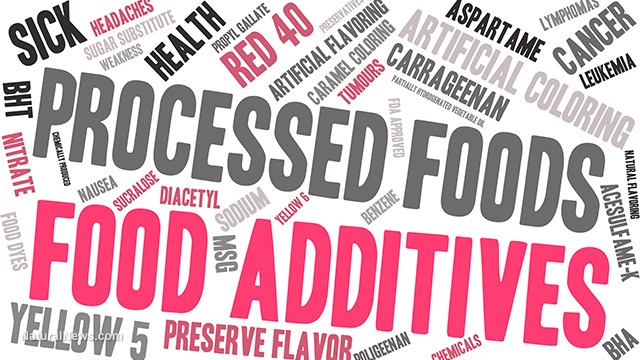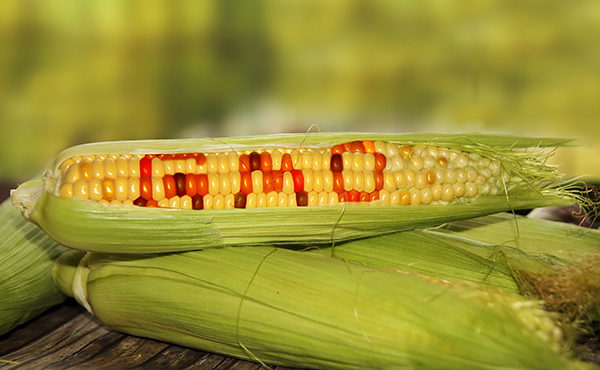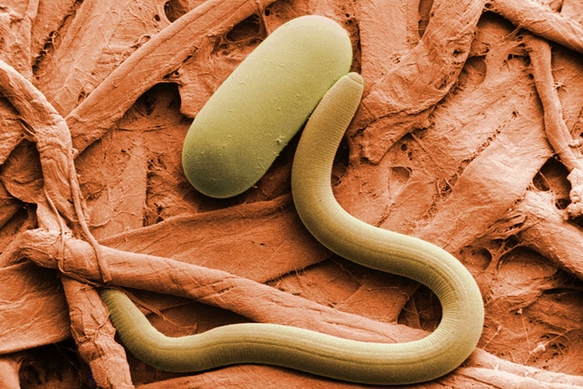Study: Popular sugar substitute erythritol linked to CARDIOVASCULAR ISSUES
10/24/2023 / By Olivia Cook

Erythritol is often used as a substitute for regular table sugar. However, a study has found that it can cause serious health issues.
The study published in Nature Medicine stated that erythritol is linked to various cardiovascular issues. “Sweeteners, like erythritol, have rapidly increased in popularity in recent years, but there needs to be more in-depth research into their long-term effects,” said corresponding author Dr. Stanley Hazen, chairman for the Department of Cardiovascular and Metabolic Sciences at the Cleveland Clinic’s Lerner Research Institute.
Researchers from the Cleveland Clinic studied over 4,000 people in Europe and the United States to “look for new pathways that contribute to cardiac disease risk.”
Different compounds in patients’ blood samples were measured to see whether or not they predicted the future risk of heart attack, stroke or death.
Once the compounds’ structure was examined, erythritol was found to be at the very top of the list. Researchers noted that people with high blood levels of erythritol had an elevated risk for heart attack or stroke.
The researchers proceeded to conduct mechanistic studies by giving erythritol to animals and found that they developed thrombotic events like a heart attack or a stroke. There’s a clot in the vessel that feeds the heart or the brain. They also found that adding erythritol to blood increases the likelihood of clotting.
Blood clotting normally occurs when there’s damage to a blood vessel. Platelets immediately adhere to the cut edges of the blood vessel and release chemicals to attract even more platelets. One of the biggest problems that cardiologists face in cardiovascular disease is abnormal clotting.
If the clotting becomes obstructive to the heart, doctors call it a heart attack or if it’s an obstruction in the blood vessels that go into the brain, doctors call it a stroke. The authors noted the importance of follow-up studies to confirm their findings in the general population because their clinical observation studies “demonstrated association and not causation.”
Erythritol is a sugar alcohol that is about 70 percent as sweet as sugar and is found naturally in some fruits, like grapes, peaches, pears and watermelon. It is also found in some mushrooms. (Related: What is the difference between stevia, Truvia and PureVia?)
The sugar alcohol erythritol can be produced commercially by food scientists via fermentation by yeast or produced inside yeast-like fungi via the pentose phosphate pathway (PPP), according to a study from Nutrients. That said, erythritol is also found in fermented foods, like beer, cheese, sake, soy sauce and wine.
Limitations of the study
The study was primarily done with those who have cardiac risks, cardiovascular problems, those who have been treated, as well as those who have diabetes.
In untargeted metabolomics studies (large-scale studies of small molecules or metabolites within cells, biofluids, tissues or organisms), circulating levels of multiple polyol sweeteners, especially erythritol, were associated with a three-year incident risk for major adverse cardiovascular events (MACE), which may include nonfatal myocardial infarction or stroke or even death.
The researchers also found that erythritol may make it easier for blood clots to form but some health experts pointed out that the data only came from studies done in mice and a small cohort of eight healthy humans.
In the Cleveland Clinic study, 30 grams was enough to make blood levels of erythritol go up a thousandfold and it remained elevated above the threshold – necessary to trigger heightened clotting risk for the following two to three days.
These weren’t the only concerns health experts and specialists had about the study.
“The association between blood erythritol levels and heart disease risk may be due to participants incorporating more sugar substitutes in their diets to lower their health risks and without a comprehensive examination of dietary patterns – both before and after disease development – it is difficult to know whether there is some reverse causation,” explained dietitian Dr Maya Vadivello, an associate professor in nutrition and food sciences at the University of Rhode Island who was not affiliated with the study.
Head over to Sweeteners.news for more stories about erythritol and other sugar substitutes.
Watch Tim Pool of “Timcast” discussing an article by People magazine about erythritol causing blood clots and heart attacks below.
This video is from the The Prisoner channel on Brighteon.com.
More related stories:
Erythritol: A natural, low-calorie alternative to refined sugar.
On keto diet? Satisfy that sweet tooth with these keto-approved sweeteners.
The truth about sugar alcohols: They are neither sugar nor alcohol, and they can destroy your health.
Keto dessert recipe: This delicious low-carb cheesecake will satisfy your sweet tooth.
Sources include:
Submit a correction >>
Tagged Under:
cardiovascular disease, cardiovascular health, Cleveland Clinic, Dangerous, erythritol, food science, frankenfood, grocery, health science, heart attack, keto diet, products, real investigations, research, stop eating poison, sugar substitutes, sweeteners, toxic ingredients
This article may contain statements that reflect the opinion of the author
RECENT NEWS & ARTICLES
StopEatingPoison.com is a fact-based public education website published by Stop Eating Poison Features, LLC.
All content copyright © 2018 by Stop Eating Poison Features, LLC.
Contact Us with Tips or Corrections
All trademarks, registered trademarks and servicemarks mentioned on this site are the property of their respective owners.



















